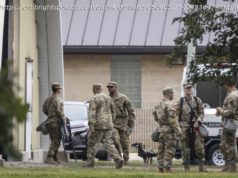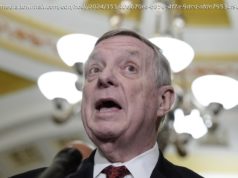The threat of a retribution-focused Trump administration and his son’s looming sentencings prompted the president to abandon a promise not to get involved in Hunter Biden’s legal problems.
A dark sky had fallen over Nantucket, Massachusetts, on Saturday evening when President Joe Biden left church alongside his family after his final Thanksgiving as president.
Inside a borrowed vacation compound earlier in the week, with its views of the Nantucket Harbor, Biden had met with his wife, Jill Biden, and his son Hunter Biden to discuss a decision that had tormented him for months. The issue: a pardon that would clear Hunter of years of legal trouble, something the president had repeatedly insisted he would not do.
Support for pardoning Hunter Biden had been building for months within the family, but external forces had more recently weighed on Joe Biden, who watched warily as President-elect Donald Trump picked loyalists for his administration who promised to bring political and legal retribution to Trump’s enemies.
Biden had even invited Trump to the White House, listening without responding as the president-elect aired familiar grievances about the Justice Department — then surprised his host by sympathizing with the Biden family’s own troubles with the department, according to three people briefed on the conversation.
But it was Hunter Biden’s looming sentencings on federal gun and tax charges, scheduled for later this month, that gave Joe Biden the final push. A pardon was one thing he could do for a troubled son, a recovering addict who he felt had been subjected to years of public pain.
When the president returned to Washington late Saturday evening, he convened a call with several senior aides to tell them about his decision.
“Time to end all of this,” Biden said, according to a person briefed on the call.
This account of how Biden came to pardon his son was described by a half dozen people close to the president and his family, all of whom spoke on the condition of anonymity to preserve relationships.
Biden’s decision has tarnished a storied public legacy that began more than 50 years ago at the hospital bedside of two sons who survived a car crash that killed his first wife and young daughter. Several people close to Biden said the decision created a conflict between two core identities: the anguished father trying to protect his son, and the president who takes pride in standing on principle.
But those people said that it had long been clear to them which version would eventually win out.Fears of a Relapse
Biden had been privately grappling with the decision to pardon his son since shortly after Hunter Biden was convicted on federal gun charges in June, according to several people familiar with his thinking, despite publicly vowing that he would not interfere with a judicial system that had found his son guilty.
As the months ticked by, the president’s mood grew ever darker.
By late July, Biden had dropped out of the presidential race, reluctantly. In September, Hunter Biden pleaded guilty on the eve of his tax trial in Los Angeles. In November, Vice President Kamala Harris lost the presidential election to Trump. And Joe Biden, now an 82-year-old lame-duck, single-term president, had been following the news, watching as Trump vowed to stock his administration with a vengeful cast of characters who would use the judicial system to punish political opponents.






